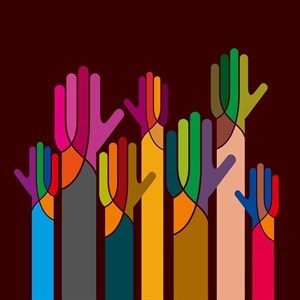The student protest movement sweeping through the halls of SA's academia shows that it is possible to unite for a common cause despite political affiliation.
In this instance, the economics of higher education have taken centre stage as students from across the political divide have presented a united front against proposed fee increases at several universities around the country.
Yet analysts say it would be premature to discard political parties as irrelevant, despite their lack of apparent involvement in the ongoing university protests.
The issue came to a head at the University of the Witwatersrand, where students have rallied together over the past week under a common cry - the institution's proposed 10.5% fee hike for next year was untenable.
A similar movement has taken shape at the University of Cape Town, Rhodes University, Fort Hare University, Stellenbosch University and the University of Pretoria. All academic activity was suspended at Rhodes, UCT and Wits on Monday and Tuesday. Wits will remain closed until Monday, 26 October.
Political analyst Steven Friedman said political parties' involvement in the student demonstrations had no material bearing on the protest movement.
"Whether the students belong to the African National Congress or the Economic Freedom Fighters is pretty irrelevant to them. What we see is action against something that doesn't affect the students on political grounds, but their economic status," Friedman said.
He also said the absence of partisan leadership in the university student protests did not mean political parties had lost their edge.
"South Africans tend to assume that every time there's a problem, the country is going down the drain," Friedman said.
"But such protests are common in democratic countries, as we've seen in France. It is common in democratic countries for students to protest. One shouldn't say that because there are student protests, the country's political structures are in jeopardy," he noted.
Education expert Graeme Bloch suggested that students' anger surpassed political loyalty.
He said that students' recent actions spoke to the fact that they no longer had faith in bureaucratic structures. Also, universities were obliged to address students' breadand-butter issues, said Bloch, adding that this was particularly pertinent for poor students.
Source: Business Day








































